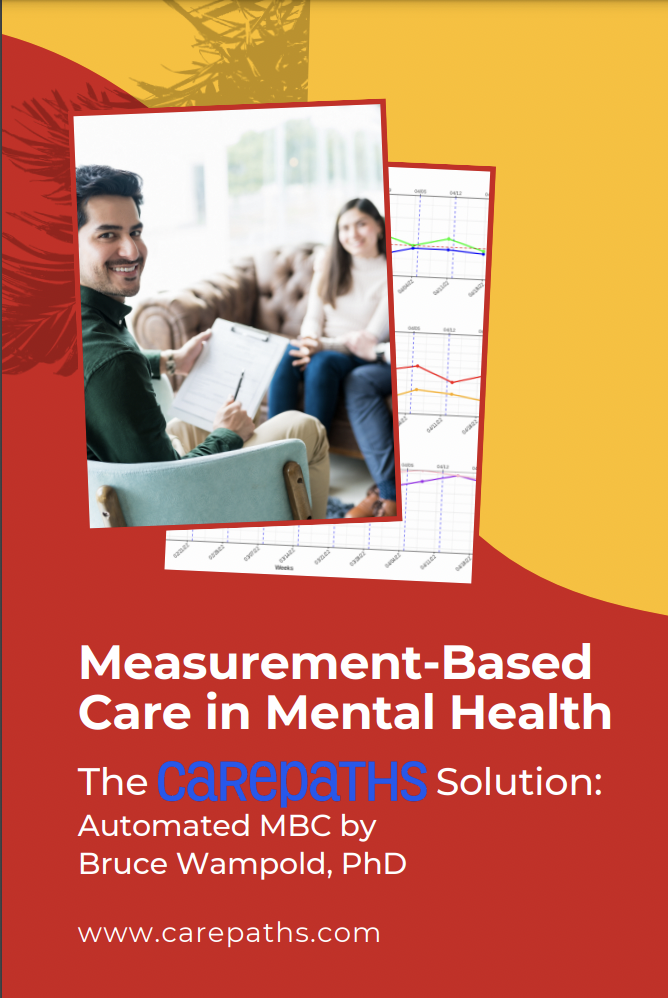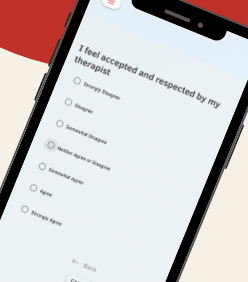FREE EBOOK



Learn Measurement Based-Care without the Administrative Burden or Guesswork.
What's covered in the eBook?
Intro to Measurement-Based Care
Learn how the research brings Measurement-Based Care to Mental Health
The Benefits of Measurement-Based Care
See how MBC benefits patients and clinicians
Talking to your clients about using MBC
Learn how to interpret and share this important information
AND MORE
Read an excerpt
Studies show that MBC can improve outcomes irrespective of the type of therapy practiced and reduce client dropout rates by up to 20%. It is particularly helpful as an intervention in cases that are not on track to be successful.This is because MBC provides valuable information about client progress so the therapist can respond accordingly. If the assessments show that a client's symptoms aren’t improving, the therapist can talk with them about what isn’t working and modify their approach, so that treatment doesn't continue in the wrong direction.
Another reason MBC leads to better outcomes is that it increases client engagement and a sense of collaboration with the therapist. Over the last few decades, psychotherapy research has consistently shown that the therapeutic alliance is one of the most important factors in successful therapy, at least as important as therapeutic technique.

About the Author
Meet the author behind this eBook in

Bruce Wampold PhD
CarePaths Chief Clinical Officer
Bruce Wampold, PhD is Professor Emeritus of Counseling Psychology at the University of Wisconsin-Madison, Former Director of the Research Institute at Modum Bad Psychiatric Center in Vikersund, Norway, and a fellow of the American Psychological Association. He has received numerous awards, including the Award for Distinguished Professional Contributions to Applied Research from the APA, the Distinguished Research Career Award from the Society for Psychotherapy Research and the Gold Medal Award for Life Achievement in the Application of Psychology from the American Psychological Foundation. He is the author of over 200 published articles and eight books translated into at least six different languages, including the classic text, The Great Psychotherapy Debate. He is known for developing the contextual model of psychotherapy after his years of research showed that differences in therapeutic outcomes could not be accounted for by the specific techniques advocated by different theories of psychotherapy, and that a set of common factors primarily relating to the client-therapist relationship are far more important for the success of therapy.
DOWNLOAD IT NOW!
"This is an actionable guide to start including Measurement-Based Care in your practice written by a leading name in the field"
All rights reserved Copyright © 2023 CarePaths, Inc.